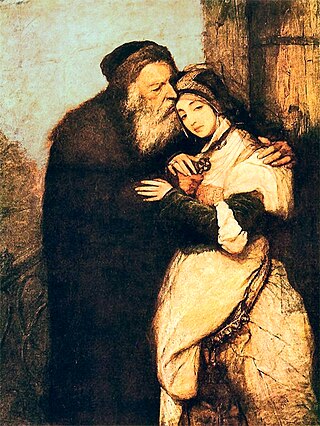Nadia is a female name. Variations include Nadja, Nadya, Nadine, Nadiya, and Nadiia. Most variations of the name are derived from Arabic, Slavic languages, or both.
Amanda is a Latin feminine gerundive name meaning, literally, “she who must be loved”. Other translations, with similar meaning, could be "deserving to be loved," "worthy of love," or "loved very much by everyone." Its diminutive form includes Mandy, Manda and Amy. It is common in countries where Germanic and Romance languages are spoken.
Monique is a female given name. It is the French form of the name Monica. The name has enjoyed some popularity in the United States since about 1955, and is less common in other English-speaking countries except for Canada although mostly used by French speakers in Quebec and is rare in the English parts of Canada.

Samantha is a feminine given name.
Michelle is a given name, originally a variant of Michèle, the French feminine form of Michel, derived from the Hebrew name Michael meaning "Who is like God?". It is now extensively used in English-speaking as well as French-speaking countries, partly influenced by the Beatles song of the same name.
Yvonne is a female given name. It is the feminine form of Yvon, which is derived from the French name Yves and Yvette. It is from the French word iv, meaning "yew". Since yew wood was used for bows, Ivo may have been an occupational name meaning "archer". Yvonne/Ivonne is also a Spanish girl name.
Megan is a Welsh feminine given name, originally a diminutive form of Margaret. Margaret is from the Greek μαργαρίτης (margarítēs), Latin margarīta, "pearl". Megan is one of the most popular Welsh-language names for women in Wales and England, and is commonly truncated to Meg.

Jessica is a female given name.
Niamh is an Irish feminine given name, anglicised as Neve, Nieve, Neave, Neavh or Neeve.
Leanne, LeAnne, Leann, LeAnn, Lee-Anne, Lee Anne, Lee-Ann, Lee Ann, Li-Anne, etc. are female given names and may refer to one of the following people:
Natalie or Nathaly is a feminine given name of English and French origin, derived from the Latin phrase natale domini, meaning "birth of the Lord". Further alternative spellings of the name include Nathalie, Natalee, and Natalia/Natalija.

Angela is a female given name. It is derived from the Greek word ángelos (ἄγγελος), meaning angel from Greek mythology. In the United States, the name "Angela" was at its most popular between 1965 and 1979, when it was ranked among the top 10 names for girls. Between 1922 and 2021, in the United States, the name was ranked in the top 35 names for girls.
Carly is a given name, a feminine form of Carl. It is also a pet form of given names such as Carla and Caroline. Variant different spellings include Carley, Carlie, Carlee, Carleigh and Carli, as well as Karly, Karli, Karley, Karlee, Karlie and Karleigh.
Denise is a female given name. Dionysus is the Greek god of wine, and the name Denise means "to be devoted to Bacchus."
Jodie is a unisex given name. It is related to names Cody, Jodi, Jody, Codey, and Jodey. It is also a rare surname. It can be used as a nickname for Joseph, Jude, Judith, Joan and Jonathan, and a variant for Jo.

Emily is a feminine given name derived from the Roman family name "Aemilius", and is the feminine form of the name Emil.
Mandy can be used as a given name, a diminutive, or a nickname, for both female and male genders. It is often used as a diminutive of the female names Amanda and Miranda, as well as being a given name in its own right. It is also used as a diminutive for the masculine names Armand, Armando, Helmand, Mandel, Mansour or Emmanuel. Variants, for both male and female, include Mandi, Mandie, and Manda.

Stephanie is a female name that comes from the Greek name Στέφανος (Stephanos) meaning "crown, wreath, garland". The male form is Stephen. Forms of Stephanie in other languages include the German "Stefanie", the Italian, Czech, Polish, and Russian "Stefania", the Portuguese Estefânia, and the Spanish Estefanía. The form Stéphanie is from the French language, but Stephanie is now widely used both in English- and Spanish-speaking cultures.
Claudia is a female given name equivalent to Claudius or Claudio. In Portuguese, it is accented Cláudia. A variant and cognate form is Klaudia. It was originally used to refer to any woman who belonged to the ancient Roman Claudia gens. Claudia is a common name in countries that speak Germanic languages and Romance languages.
Hyacinth is a variant form of the given name Hyacinthe. The name is derived from a Greek word meaning the blue larkspur flower or the colour purple.





